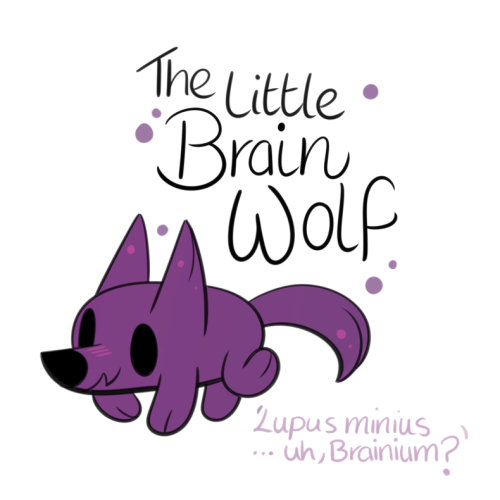Possiblyfromorion - M Kay

More Posts from Possiblyfromorion and Others
“You are an aperture through which the universe is looking at and exploring itself. Through our eyes, the universe is perceiving itself. Through our ears, the universe is listening to its harmonies. We are the witnesses through which the universe becomes conscious of its glory, of its magnificence.”
— Alan Watts
“It takes practice to hear your true desires. Your passion will often come as a whisper or serendipitous event that reminds you of what’s important and what makes you happy.”
—
Eckhart Tolle
Case of INTP: Dumb until Smart
It has come to my attention that INTP (especially) have to deal with this issue: being dumb until they suddenly become smart.
What do I mean by this?
I look to introverted thinking (Ti) dominance in the INTP to answer this peculiarity in the INTP to answer that question.
The INTP’s Ti is always running. It is always building and correcting one’s internal framework, looking at different facts, figures, concepts, and arguments (even if contradictory) to create the most accurate build of whatever Ti user is interested in (could be anything from fashion to math, by the way).
Now, that sounds really cool. I admit it. However, there’s a caveat to that: internal. Unlike Te dominant people (extraverted thinkers: ENTJ/ESTJ), the thinking process in the INTP is introverted, meaning the INTP uses a subjective categorizing system to identify, sort, and store the data they observe and obtain. Te users use the external data itself to make decisions, while Ti user must have a framework in which to put that data into, otherwise it’ll likely have no relevance and therefore, be forgotten.
Thus, an INTP is only as smart as the model one has built in one’s head, and equally, as dumb as the model one has built. If that model is inaccurate in some way (whether due to lack of due diligence in Ne and Si or unconscious Fe), the INTP individual will have trouble identifying problems and and coming up with adequate solutions. INTP will struggle, not with the delivery of thought or idea, but rather, with the reception or lack thereof.
Because the subjective Ti model is incorrect or inaccurate, the Ti using INTP will not be able to figure out where the disconnect is. Then it’s the familiar pattern; confusion, frustration, and finally, decision that everyone else is dumb for their inability to comprehend or understand. Because Ti is a rational judging function (even if introverted), INTP will actually believe the self is right and even be able to convince themselves that they’re not the problem, even if others point out flaws or differing viewpoints.
That’s how you have a dumb INTP.
However, with enough failures, some dumb INTPs stop thinking that they’re 100% correct. They start to question their presumptions and conclusions. They question the model. Some of them may question themselves (could lead to depression or other instability during this phase). They realize that the model they have in their head might be incorrect and start research to verify that their “deductions” are correct.
This is how you have the typical, average INTP.
Then, the INTP begins to seek out more objective observations. They talk to people, asking for input. They share their thoughts, not with the goal of arguing, but for clarification. And when they’re in this “exploratory mode,” they will likely tap into their unconscious inferior Fe function, which will prevent them from coming across as crass, cold, or like a jackass. In the process, INTP will likely find many consistent but also inconsistent information, they’ll find different but potentially equal and valid points, and seek to integrate it to the Ti model. As the INTP actively turns and twists the model within oneself, INTP will finally be granted their “Eureka” moment, when everything finally clicks into place. Of course, through this process, their model is going to be potentially immense and complex (yet at the same time, incredibly simple for the Ti user) due to the amount of Ne-Si data collection that will have likely gone into it.
INTP will find that their model is perfectly suited to understanding many areas, but also to actually solve important real life problems, … this will make the INTP very happy. This allows the inferior Fe to come out more as well, due to the relaxation resulting from an accurate understanding. The INTP will then continue looking at new things to incorporate and change their models to be even more accurate and applicable in even broader areas of life, and this will make a very excited INTP. This also helps those around them, and they’re more likely to come to the INTP for advice, which the INTP will more than likely be happy to help with (depends on the problem).
And that’s how you finally have the smart INTP.
Not saying it’s easy to be any other type, but being smart INTP takes a lot of determination and work for sure. So keep at it, INTPs. You’re always going to be a work in progress, but that’s when you’re “smart.”

20 Cognitive Biases That Screw Up Your Decisions
Remember that everyone, including you and me, suffers from these biases. If you find that you’re trying to convince yourself that you’re special, that somehow these biases don’t apply to you, then you’re only intensifying their influence. Here are a few choice biases that are hidden around every corner:
Availability Heuristic: People overestimate the importance of information that is available to them. A person might argue that smoking is not unhealthy because they know someone who lived to 100 and smoked three packs a day.
Bandwagon Effect: The probability of one person adopting a belief increases based on the number of people who hold that belief. This is a powerful form of groupthink.
Choice-supportive Bias: When you choose something, you tend to feel positive about it, even that choice has flaws. Like how you think your dog is awesome–even if it bites people once in a while.
Clustering Illusion: This is the tendency to see patterns in random events. It is key to various gambling fallacies, like the idea that red is more or less likely to turn up on a roulette table after a string of reds.
Confirmation Bias: We tend to listen only to information that confirms our preconceptions–one of the many reason it’s so hard to have an intelligent conversation about climate change.
Selective Perception: Allowing our expectations to influence how we perceive the world. An experiment involving a football game between students from two universities shows that one team saw the opposing team commit more infractions.
Stereotyping: Expecting a group or person to have certain qualities without having real information about the person. It allows us to quickly identify strangers as friends or enemies, but people tend to overuse and abuse it.

What are you distracting yourself from?

A demonstration of the physics of inertia. (Source)

by GretaLarosa
“Detachment is not that you should own nothing, but that nothing should own you.”
— Ali Ibn Abi Talib



I can’t believe they oblitered straight men like that

















So I doodled one of these then instantly became obsessed with the idea and can’t stop and have been spamming twitter with brain wolf facts sorry everyone.
-
 h-didanart liked this · 1 month ago
h-didanart liked this · 1 month ago -
 the-letter-horror-lover liked this · 1 month ago
the-letter-horror-lover liked this · 1 month ago -
 solarflaresdaddyissues liked this · 1 month ago
solarflaresdaddyissues liked this · 1 month ago -
 multifandomcutie13 reblogged this · 1 month ago
multifandomcutie13 reblogged this · 1 month ago -
 multifandomcutie13 liked this · 1 month ago
multifandomcutie13 liked this · 1 month ago -
 randombone reblogged this · 3 months ago
randombone reblogged this · 3 months ago -
 bonemarroww liked this · 3 months ago
bonemarroww liked this · 3 months ago -
 potent-nein reblogged this · 3 months ago
potent-nein reblogged this · 3 months ago -
 yee-hawmf liked this · 3 months ago
yee-hawmf liked this · 3 months ago -
 namivv reblogged this · 3 months ago
namivv reblogged this · 3 months ago -
 namivv liked this · 3 months ago
namivv liked this · 3 months ago -
 ghostprince reblogged this · 3 months ago
ghostprince reblogged this · 3 months ago -
 littletartine reblogged this · 3 months ago
littletartine reblogged this · 3 months ago -
 littletartine liked this · 3 months ago
littletartine liked this · 3 months ago -
 succubusted reblogged this · 3 months ago
succubusted reblogged this · 3 months ago -
 alliezweihander liked this · 3 months ago
alliezweihander liked this · 3 months ago -
 bottlehound reblogged this · 3 months ago
bottlehound reblogged this · 3 months ago -
 cyazurai liked this · 3 months ago
cyazurai liked this · 3 months ago -
 lilbittymonster reblogged this · 3 months ago
lilbittymonster reblogged this · 3 months ago -
 clockworkdragonffxiv reblogged this · 3 months ago
clockworkdragonffxiv reblogged this · 3 months ago -
 torture-me-with-sorcery liked this · 4 months ago
torture-me-with-sorcery liked this · 4 months ago -
 cheesychiez reblogged this · 4 months ago
cheesychiez reblogged this · 4 months ago -
 koolwhipguy reblogged this · 4 months ago
koolwhipguy reblogged this · 4 months ago -
 chase-the-winds reblogged this · 4 months ago
chase-the-winds reblogged this · 4 months ago -
 forestnymph1214 liked this · 4 months ago
forestnymph1214 liked this · 4 months ago -
 the-enfolded liked this · 4 months ago
the-enfolded liked this · 4 months ago -
 yslflipflops liked this · 4 months ago
yslflipflops liked this · 4 months ago -
 thegreywoof reblogged this · 4 months ago
thegreywoof reblogged this · 4 months ago -
 naturalscoot liked this · 4 months ago
naturalscoot liked this · 4 months ago -
 vampirethot69 reblogged this · 4 months ago
vampirethot69 reblogged this · 4 months ago -
 mercyviper liked this · 4 months ago
mercyviper liked this · 4 months ago -
 candylipspoisontongue liked this · 4 months ago
candylipspoisontongue liked this · 4 months ago -
 angry-space-dorito reblogged this · 4 months ago
angry-space-dorito reblogged this · 4 months ago -
 angry-space-dorito liked this · 4 months ago
angry-space-dorito liked this · 4 months ago -
 requitedarc9 liked this · 4 months ago
requitedarc9 liked this · 4 months ago -
 letthehatersbark reblogged this · 4 months ago
letthehatersbark reblogged this · 4 months ago -
 shipleaves reblogged this · 4 months ago
shipleaves reblogged this · 4 months ago -
 sydneyaustralia liked this · 4 months ago
sydneyaustralia liked this · 4 months ago -
 banquosgoat reblogged this · 4 months ago
banquosgoat reblogged this · 4 months ago -
 mariam-af reblogged this · 4 months ago
mariam-af reblogged this · 4 months ago -
 safetytree liked this · 4 months ago
safetytree liked this · 4 months ago -
 eternal-in-eden reblogged this · 4 months ago
eternal-in-eden reblogged this · 4 months ago -
 eternal-in-eden liked this · 4 months ago
eternal-in-eden liked this · 4 months ago -
 angels-bruisez liked this · 4 months ago
angels-bruisez liked this · 4 months ago -
 evilqueerposts liked this · 4 months ago
evilqueerposts liked this · 4 months ago -
 capsaicinpoisoning reblogged this · 4 months ago
capsaicinpoisoning reblogged this · 4 months ago -
 capsaicinpoisoning liked this · 4 months ago
capsaicinpoisoning liked this · 4 months ago -
 melaphyres liked this · 4 months ago
melaphyres liked this · 4 months ago -
 couldnt-think-of-anythin-better liked this · 4 months ago
couldnt-think-of-anythin-better liked this · 4 months ago
